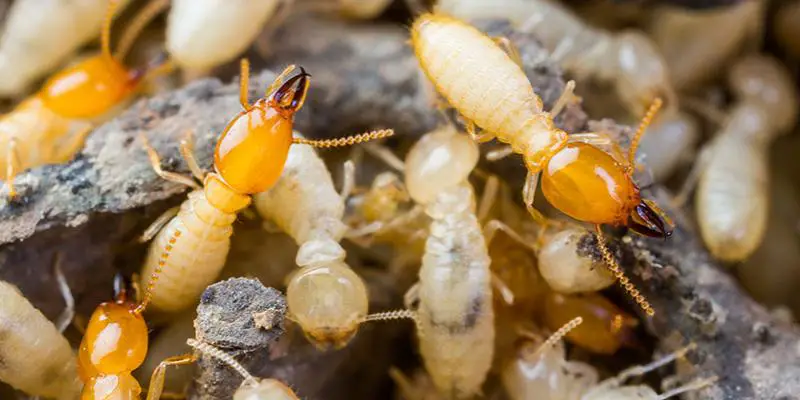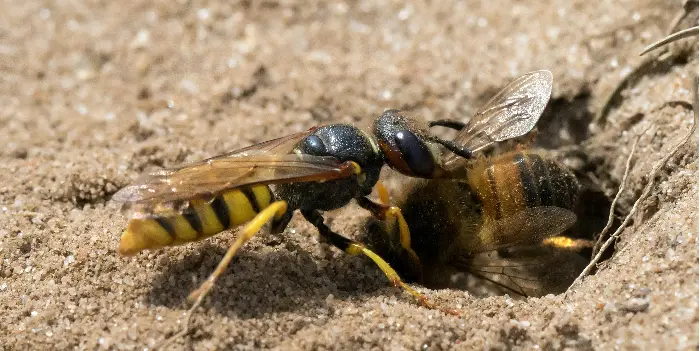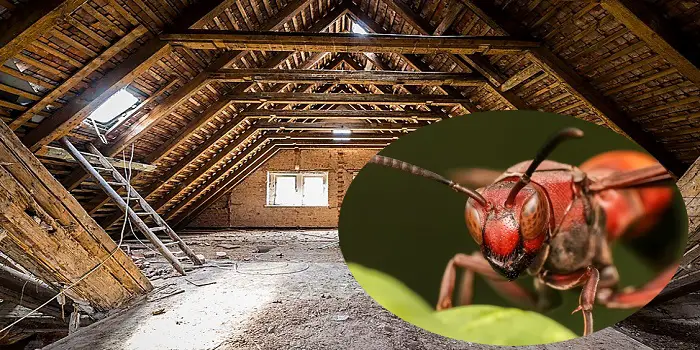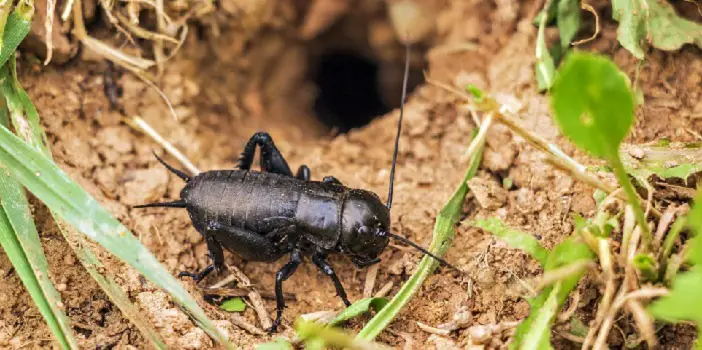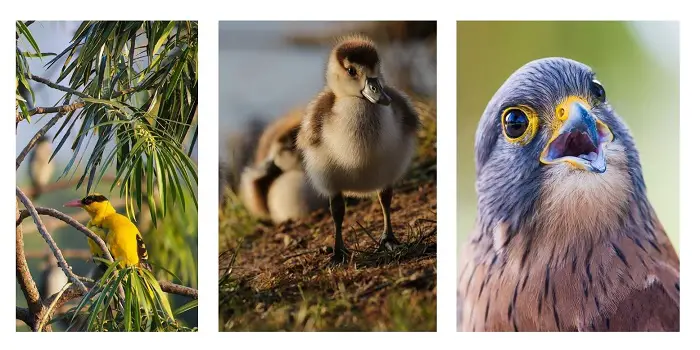
Having some wild birds in your yard can be great as they can eat away a variety of insects that can be otherwise harmful to your garden and crops.
However, you should remember that birds attracted to your yard are hungry creatures – they love to eat almost any foodstuffs.
The problem when attracting and feeding the birds in your backyard is that there are some foods that are poisonous to their systems.
This simply means that many foods that are safe for humans to eat are not the same for birds.
The reason is that birds are not mammals, which means that they have different dietary requirements.
Plus, their systems have been honed over millions of years to consume certain foods.
What follows are 10 types of everyday foodstuffs that are toxic to birds.
You should avoid feeding the birds any of these substances and stick only to those that are designed for their unique systems.
1- Avocado
Avocados are a great food source for people, but not for birds.
This is especially true of the leaves which contain persin.
Persin is a derivative of fatty acid that can cause respiratory illness, heart failure, and even sudden death in birds.
The poisoning of birds in this manner often occurs when the avocados are mashed into forming guacamole.
And while some forms of avocado, such as Lories, are safe for birds, just like mushrooms telling the difference may be difficult.
It’s better to be safe than sorry, so keep all forms of avocados away from your backyard birds.
This will ensure that no mistake is made when feeding them.
2- Caffeine
Even a sip or two from a caffeinated drink may be fatal to a wild bird visiting your property.
This is because caffeine may cause their heart rate to rise rapidly, hyperactivity, and in some cases, a heart attack.
You should never provide any caffeinated drinks to the birds, particularly coffee, pop, or tea.
However, in many cases, the ingestion is accidental as such drinks are left out so the bird can gain access.
What you can do is, stick to water which is the safest of all drinks for birds.
Plus, you can provide fruit drinks such as apple or cranberry juice if it is 100% natural with no added sugar.
3- Chocolate
Just as chocolate is poison to dogs, so too is it poisonous to birds.
This is because chocolate contains caffeine, which, as previously noted, is deadly to birds.
Plus, it also contains theobromine which can have a similar effect as caffeine.
When put together in chocolate, it represents a real danger to the birds.
Tremors, seizures, and hyperactivity are the symptoms of chocolate poisoning. And sudden death is also a possibility.
Keep chocolates and chocolate cakes away from the birds.
And instead, offer them some natural treats such as a banana slice, papaya, grapefruit, pineapple, or perhaps a few grapes.
4- Fat and Salt
Unfortunately, many foodstuffs that we love contain fat and salt, which can be dangerous for birds to consume.
It does not help that foods that contain high amounts of fat or salt, such as popcorn, crackers, chips, and other snacks, are virtually everywhere in a person’s diet.
But when your backyard bird consumes more than a tiny amount of salt, it can undergo many unpleasant symptoms that include dehydration, kidney dysfunction, and even death.
The consumption of fatty foods may lead to the buildup of fat deposits in the bloodstream.
The result is that a bird becomes more vulnerable to cardiovascular issues, just like humans.
This means that you should avoid feeding your garden birds treats that have high amounts of fat or salt.
5- Fruit Pits & Apple Seeds
It may seem counterintuitive at first since birds love fruits and, for the most part, are safe to feed.
However, there are certain types of fruits that contain seeds that may be dangerous to birds.
This is because the seeds from apples and pears and pits from apricots, cherries, nectarines, peaches, and plums contain a small amount of cardio-toxic cyanide.
While the amount of cyanide present is far too small to harm humans, birds being smaller makes them far more vulnerable.
However, the seeds from other fruits such as berries, citrus fruits, grapes, mangos, melons, pomegranates, pumpkins, and tomatoes do not contain any cyanide and are safe for the birds to consume.
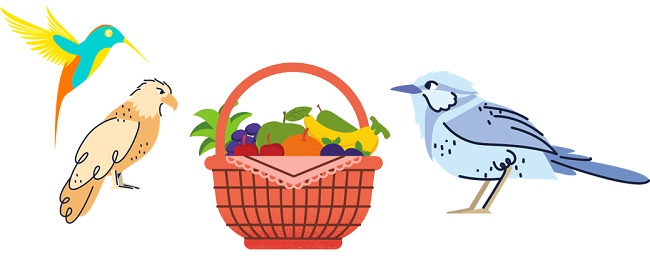
6- Garlic & Onions
Dogs, cats, and birds do not react well to the ingestion of garlic or onions.
While it is healthy for humans to eat, onions contain sulfur which can rupture the blood vessels and may lead to anemia.
In addition, the bird’s inner mouth and the esophagus, and crop may be vulnerable to irritation from the ingestion of onions.
Garlic contains allicin which can also cause anemia in birds, so it is best to keep both garlic and onions safely stored so the birds cannot get at them.
7- Teflon
At first, it may seem difficult to understand how a bird can ingest the non-stick surface of pots and pans.
But what happens with Teflon is that when it is heated, vapors are released that can damage the respiratory tracts of birds which may cause complications including sudden death.
Such vapors are in amounts too small to affect most people, at least at once.
But for the birds, the presence of toxic vapors generated by non-stick cooking surfaces may be enough to cause serious damage or worse.
If you have birds in your yard and want to feed them, it is best to use products that do not contain Teflon or other artificial non-stick surfaces.
For example, there is cookware that uses natural stone surfaces that do not emit any toxic vapors.
If you use non-stick cookware or have appliances that emit such toxic vapors, such as stoves and ovens, which are coated with non-stick materials along with toasters, then keep the birds away from the kitchen.
Try to keep them in a well-ventilated area where the air source is from the outside and does not flow through the kitchen.
This will help considerably in protecting the birds while you are preparing meals.
8- Xylitol
This artificial sweetener is found in many diet foods and drinks containing no sugar.
The full effects of Xylitol have not been studied in birds, but what is known is that it can cause severe cases of hypoglycemia.
This means that the bird may be vulnerable to damage to the liver and even sudden death.
Dogs are vulnerable to the effects of Xylitol, and anecdotal evidence suggests that birds may also be just as vulnerable.
9- Heavy Metals
This is not loud rock music, but the metals found in wires, paint, zippers, twist ties, and other small objects that birds love to put in their beaks.
The heavy metals that are toxic to birds include copper, lead, and zinc.
And while these are not foodstuffs and are dangerous to humans as well, birds will often put small items in their beaks to taste them which may be enough to become poisoned.
When ingested in tiny qualities, a bird may seem to be intoxicated.
This is much like when people consume alcohol which is also a poison to our systems.
However, if the bird should consume a large number of heavy metals, it can suffer from seizures and damaged nerves, which may cause permanent damage.
10- Aerosols, including Smoke
Although this is inhaled rather than consumed, wild birds are especially vulnerable given their small size.
Inhaling smoke is particularly nasty for the birds whose lungs cannot handle the contents.
Of course, the same is true for humans and pets, but birds being so small, is even more vulnerable.
The same can be said of aerosols, such as hair sprays along with incense, fumes from candles, and perfumes.
Such aerosols can irritate the air sacs in their lungs which leads to complications.
Of course, keeping the birds away from all aerosols may be difficult, but you can make it easier by attracting the birds to a well-ventilated area.
If you must do some cleaning or use aerosol products, be sure to do so outside the area where the birds are attracted.
What do Human Food Can Birds eat?
Although many items discussed above are toxic for wild birds and should be avoided, there are a few safe items from your kitchen that you can feed them.
To attract wild bird predators in your backyard (to eat away other pests) you can give these food items…
- Bread
- Raisins
- Granola
- Eggshells
- Peanut butter
- Cooked rice and beans
The Conclusion
Common sense is your best friend in keeping your backyard birds safe and healthy.
If you want to attract a few of them, only feed them the recommended foods, use tap or bottled water for drinking, depending on which is safer, and keep them in a well-ventilated area.
This will not only avoid death but also will protect the birds while avoiding some of the most obvious threats to their health and wellbeing.
Share the post "10 Common Foodstuff that Can Be Toxic to Wild Birds"

Welcome to ProShieldPest.com. I am Tina Jones. I have been working as a pest removal professional in Winslow, Arizona lately. At present, I love to spend my time with my family as a retiree.
Here I share all my knowledge and experiences to help people understand better how they can stop pests at their homes without actually killing them. Hopefully, the information you will find here will help in safeguarding your home! You can check more about me here.

